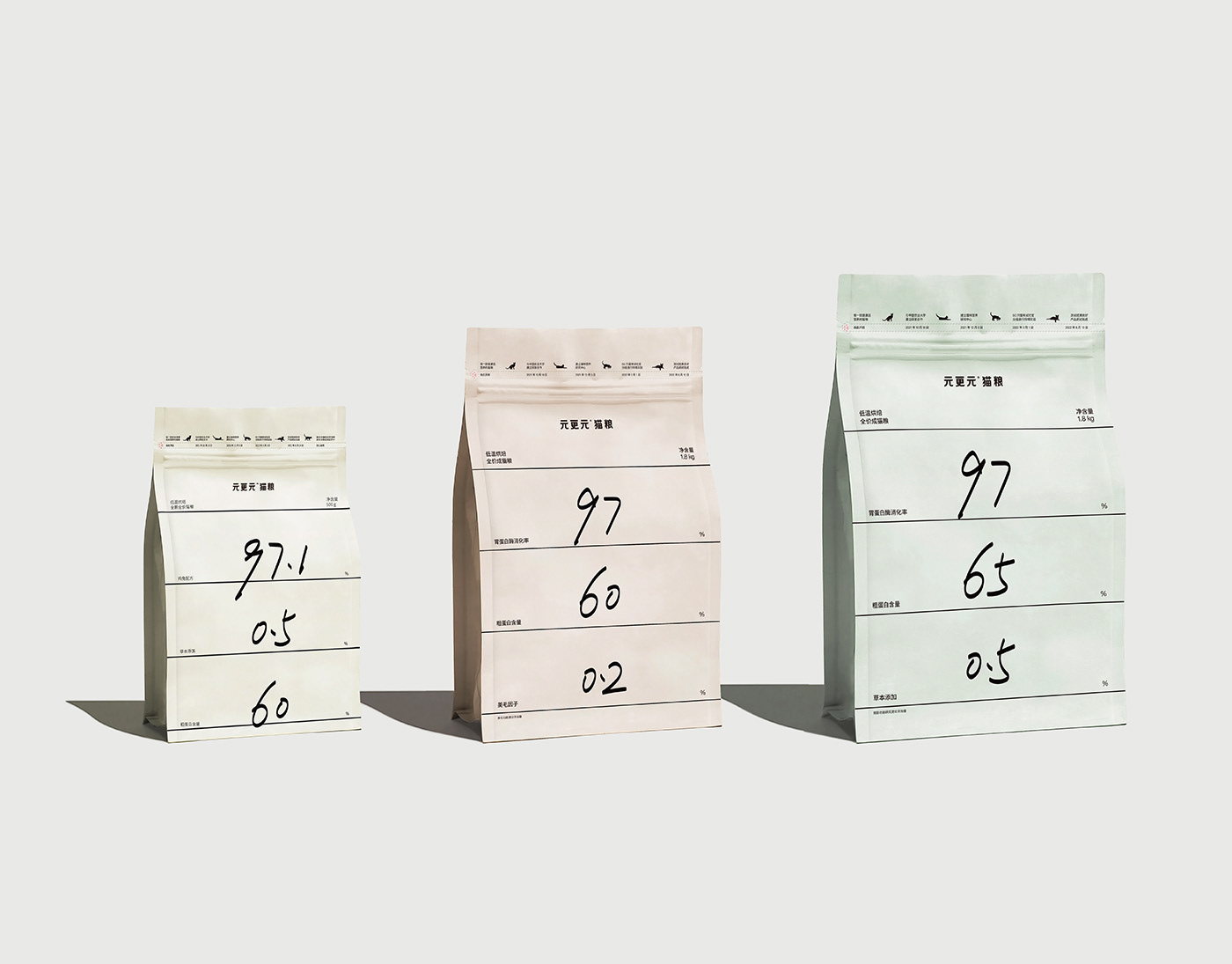
FRIGO MODULAR FRIDGE //
Brief
My MA thesis is about the concept of food storage system that can be a part of the changing apartments of the near future. I consulted with a food safety specialist and a food engineer to identify the range of issues that arise in everyday home hygiene. The identified problem is based on four distinct pillars that are still related in some way.
My MA thesis is about the concept of food storage system that can be a part of the changing apartments of the near future. I consulted with a food safety specialist and a food engineer to identify the range of issues that arise in everyday home hygiene. The identified problem is based on four distinct pillars that are still related in some way.

The first problem is related to the amount of food waste at home – and that’s a huge amount. Most people forget about the food they have purchased, so they expire unnoticed. Shopping itself became a background activity – it is not even conscious, people do it by reflex, so they are more easily influenced by the shops themselves. Of course, shops store the foods as attractive as possible to generate profit. They use professional lighting and layout to make the products tempting – but as soon as people buy them and bring them home, they face with something they didn't even want to eat because it is not that cool-looking anymore. We are all familiar with the sight of fruits rotting in plastic bags.
The second issue is related to the refrigerator itself. On the basics, it is a product that has undergone only a handful of large-scale design changes over the past 100 years. It is essentially a large box and therefore does not meet today's needs in many ways: people don't see what is stored on the inside, it has high energy consumption, and it may have a high noise level. More importantly certain foods lose their nutrient content in the fridge while odors and flavors are easily mixed. Of course, there are refrigerators with partial solutions (smart refrigerators with food tracking functions or see-through doors), but there hasn't been a large-scale, fundamental change in the storage of food for a long time.

As for the third problem, the foods stored at home have varying needs – even those that are usually placed in the refrigerator. For example, the average refrigeration temperature is too cold for vegetables but too hot for meat, and the gases emitted by certain fruits can decrease the deterioration time a lot.
The most important problem is related to the living spaces that have changed due to urbanization: recently, micro-dwellings, and within them multifunctional rooms, have emerged, and the boundary between the living room, the bedroom, the dining room and the kitchen has blurred. Some of the furniture and tools designed specifically for these specific rooms have therefore become obsolete – people's habits regarding food consumption and food storage have changed too quickly.

I wanted to solve these problems by designing a modular storage system that adapts to people’s changed habits, to different living spaces and lifestyles, that can keep each food category in a suitable, disinfecting and decay-delaying medium. In addition, I would like to give the food an attractive character – it would be displayed gracefully and honestly, so that the user already knows what is at home. Of course, this system would also have food recognition technology and a smart home connection.
Process
I approached the basic form from several directions – I designed sci-fi-like, high-tech versions, as well as more traditional concepts, which were the descendants of today’s refrigerators. I had to find an optimal transition between these two directions because I didn’t want to design a simple box. The final version had to be both believable and innovative – it had to reflect existing modern technologies, but it also had to illustrate an improvement over classic household appliances.

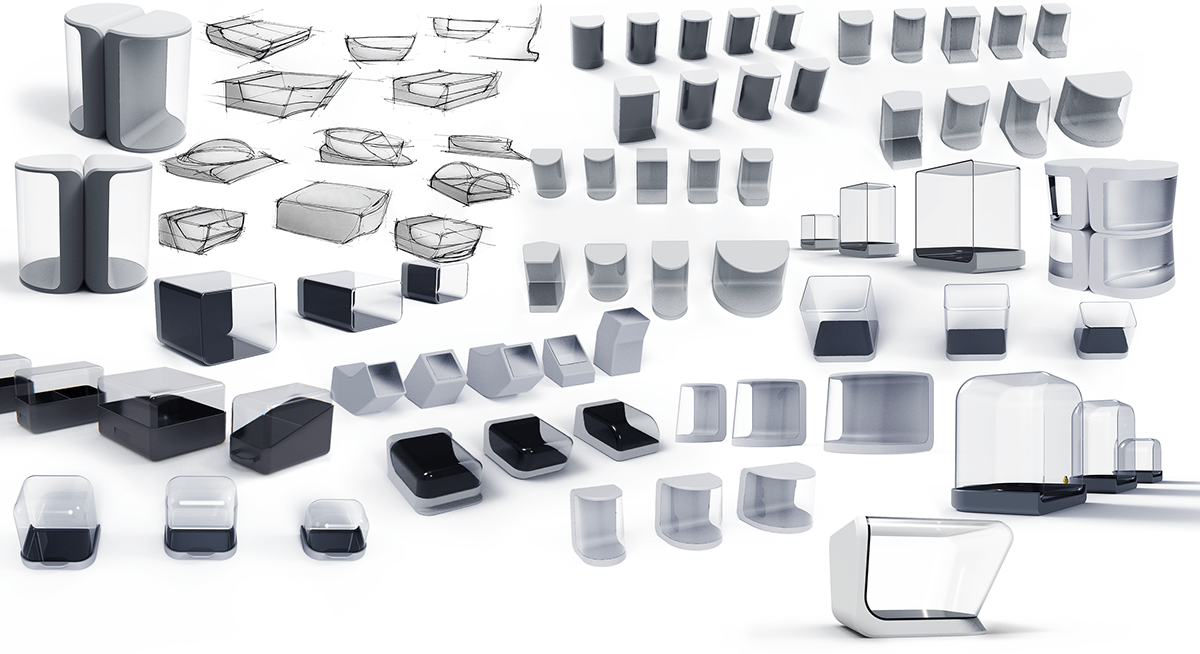

During a rapid prototyping phase, I made mockups from cardboard to determine the comfortable sizes of some edges and handles.

Concept

The FRIGO product family is based on portable and stationary modules, which have cooling technology similar to refrigerators. Their placement is completely arbitrary: there is no classically defined dock or cabinet for them to be purchased as a separate product. I designed them to be able to blend with a lot of environments.

S
The S sized module is a freely portable, decorative product, which looks the best while placed on flat surfaces, such as kitchen countertops and tables. It is mainly suitable for storing leftovers, fruits and pastries. It has an inside volume of 8 liters.
The S sized module is a freely portable, decorative product, which looks the best while placed on flat surfaces, such as kitchen countertops and tables. It is mainly suitable for storing leftovers, fruits and pastries. It has an inside volume of 8 liters.
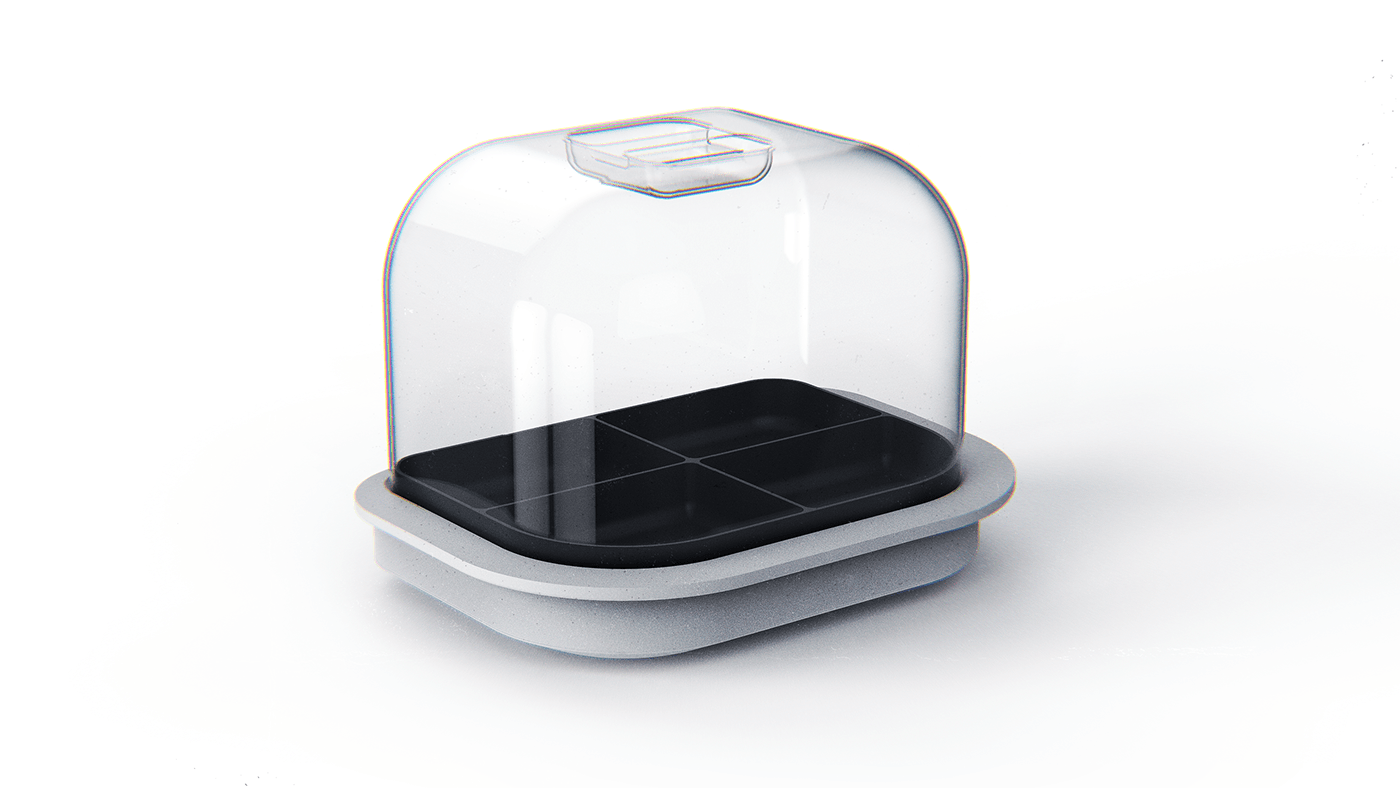
M
The position of the M sized modules is also freely adjustable before their installation. There is no reason to use them as flexibly as the smallest module: they should be placed permanently where the user wants to use them. For instance, in the case of fruits&vegetables, it is best to be placed on the kitchen countertop, or in the case of drinks&snacks, it is suitable to use it where the users relax and have fun. It has an inside volume of 16 liters.
The position of the M sized modules is also freely adjustable before their installation. There is no reason to use them as flexibly as the smallest module: they should be placed permanently where the user wants to use them. For instance, in the case of fruits&vegetables, it is best to be placed on the kitchen countertop, or in the case of drinks&snacks, it is suitable to use it where the users relax and have fun. It has an inside volume of 16 liters.

L
The L sized module acts like the shelves of a fridge. It’s a bigger, heavier piece which is capable of storing large, highly kitchen-centric foods. It has an inside volume of 24 liters.
The L sized module acts like the shelves of a fridge. It’s a bigger, heavier piece which is capable of storing large, highly kitchen-centric foods. It has an inside volume of 24 liters.


Various shelf elements, egg holders, box and bottle holders ensure the opportunity of space-saving and customization. I believe it’s essential
for users to have control over the product and not the other way around.
for users to have control over the product and not the other way around.


The modules are monitored, switched on and off by a touch screen interface. It is also possible to control their inside temperature manually this way.

Technology
The basics of the cooling mechanism are the same as for an average household chiller – it's based on a coolant that can evaporate at low temperatures. The evaporation itself extracts warmth from the interior of the modules. The process can be operated with a simple electric motor that is attached to a built-in battery. This battery ensures that the S sized modules can be carried freely at home. The insulation closure is provided by a magnetic rubber strip, the double-layered polycarbonate cover and vanadium-dioxide which is the base material for several smart glass technologies.
The basics of the cooling mechanism are the same as for an average household chiller – it's based on a coolant that can evaporate at low temperatures. The evaporation itself extracts warmth from the interior of the modules. The process can be operated with a simple electric motor that is attached to a built-in battery. This battery ensures that the S sized modules can be carried freely at home. The insulation closure is provided by a magnetic rubber strip, the double-layered polycarbonate cover and vanadium-dioxide which is the base material for several smart glass technologies.

Sterilization
Besides activated carbon filters and a PCA coating, the FRIGO modules use UVC-LED spots to achieve a germicidal effect. This way the foods (especially fruits and vegetables) expire much later. The smart glass cover absorbs the dose of UV that would be harmful to humans. I tested this technology in real life on bananas by using basic germicid lamps.
Besides activated carbon filters and a PCA coating, the FRIGO modules use UVC-LED spots to achieve a germicidal effect. This way the foods (especially fruits and vegetables) expire much later. The smart glass cover absorbs the dose of UV that would be harmful to humans. I tested this technology in real life on bananas by using basic germicid lamps.


Smart glass technology is suitable for “hiding” the inside of the modules. This could be useful if the user doesn't find the stored food that appealing anymore or if she expects guests and she doesn't want them to see what is inside the modules. Moreover, certain types of food, e.g. raw meats don’t like constant sunlight. Smart glass is able to switch between transparent and opaque states with a single tap or by sensing the human presence.
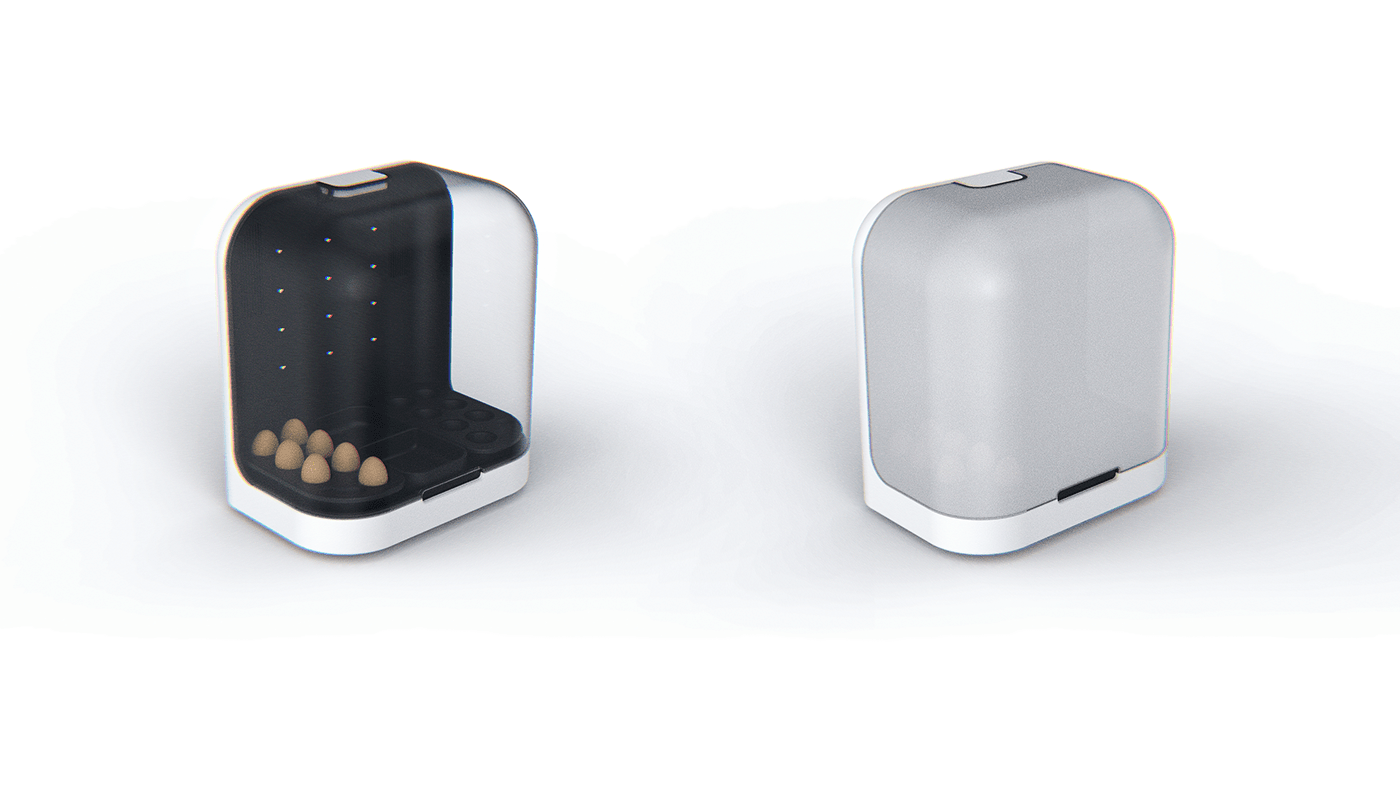
The internal battery of the modules is powered via inductive charging technology, which has undergone many development in recent years, so in my opinion the technology will be even more widespread and flexible in the near future. It is not even necessary to change the aesthetic appearance of the modules to be adapted to this wirelessness – we simply place it on the charging surface and it instantly receives power.




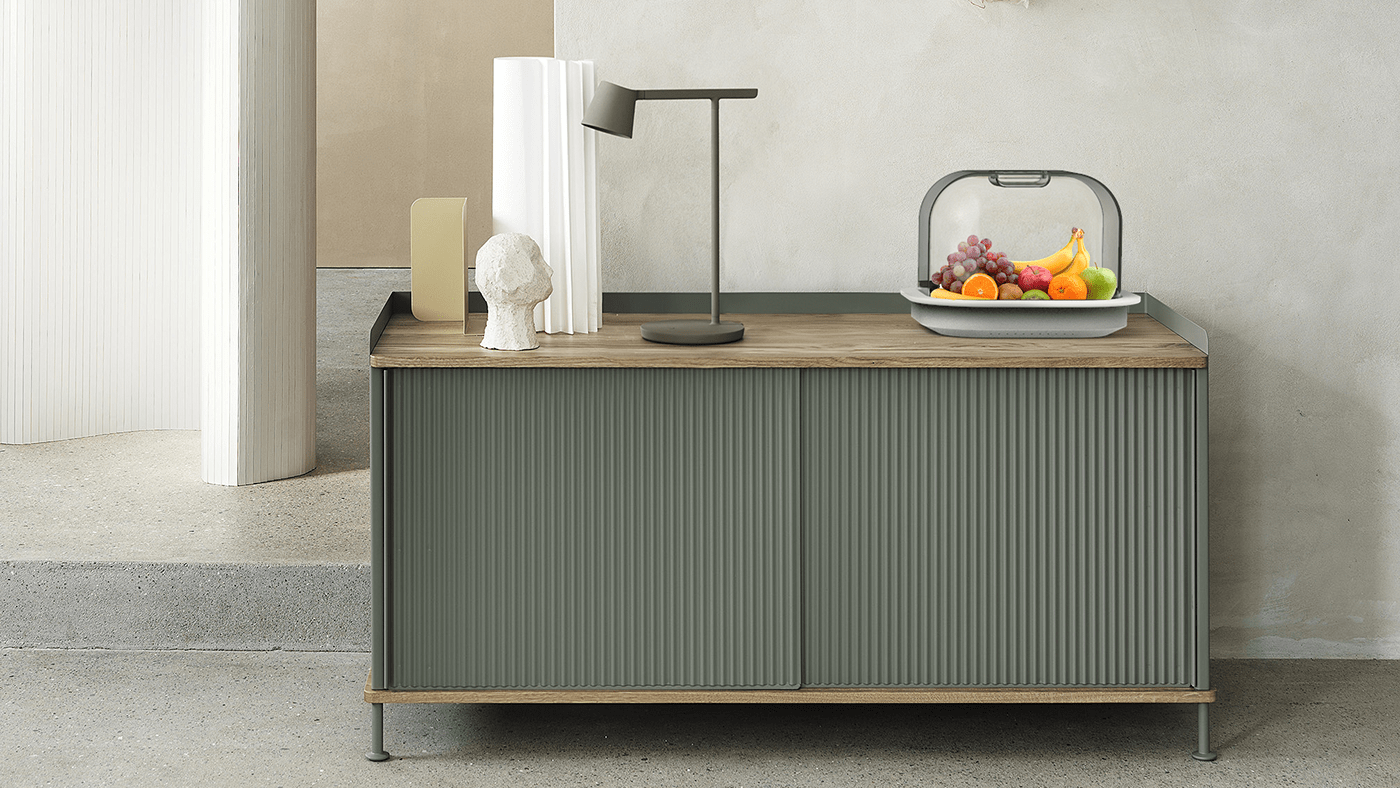
Food tracking
This feature uses a built-in mini camera and already-existing AI and AR technologies to determine what kind of food the user stores inside. This way she will always know what's at home – even if she is at the store with only her smartphone around. I believe this function can solve the problem of buying unnecessary things which leads to overspending and a generating food waste.


Application
I also designed the base of an application which could be the main platform for the food tracking feature. It would be also be able to control the inside temperature of the modules from anywhere.
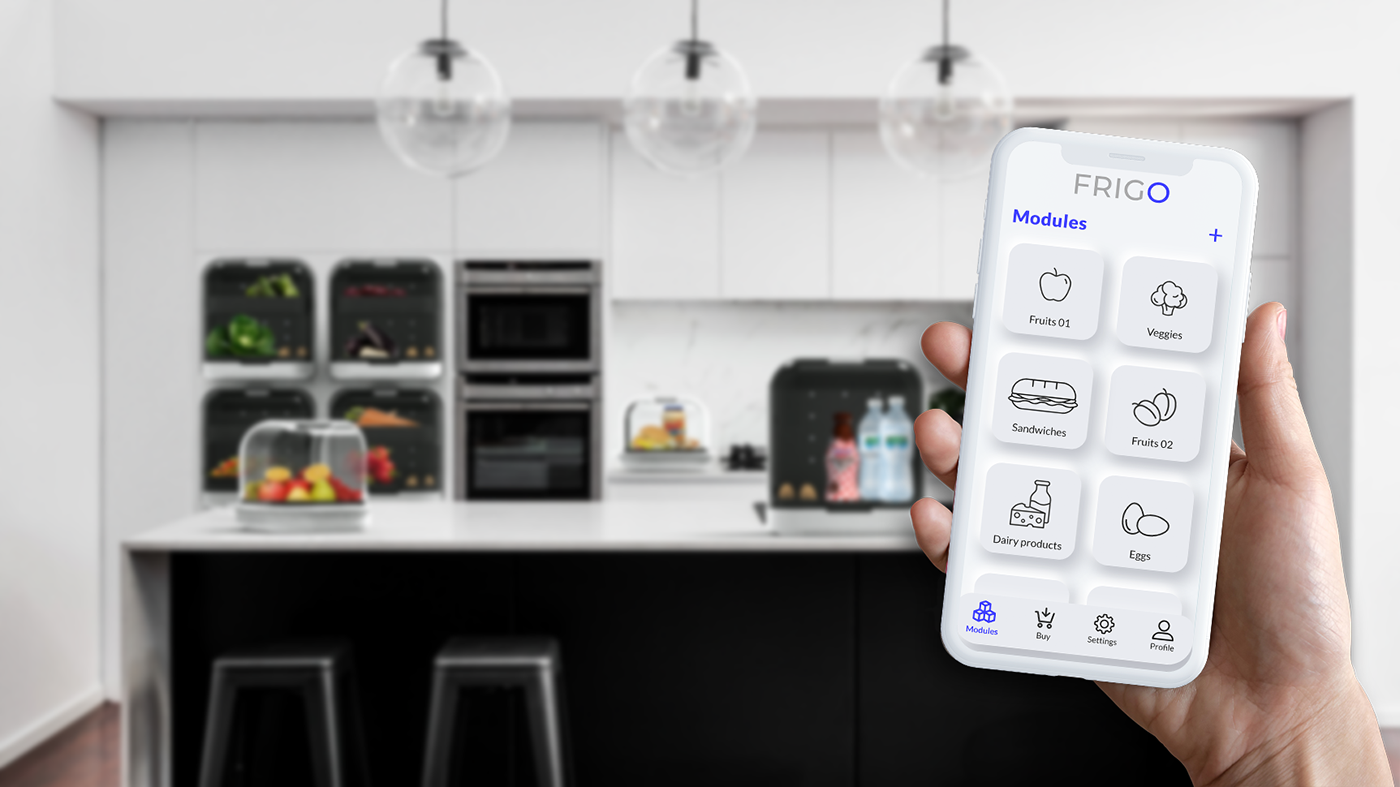



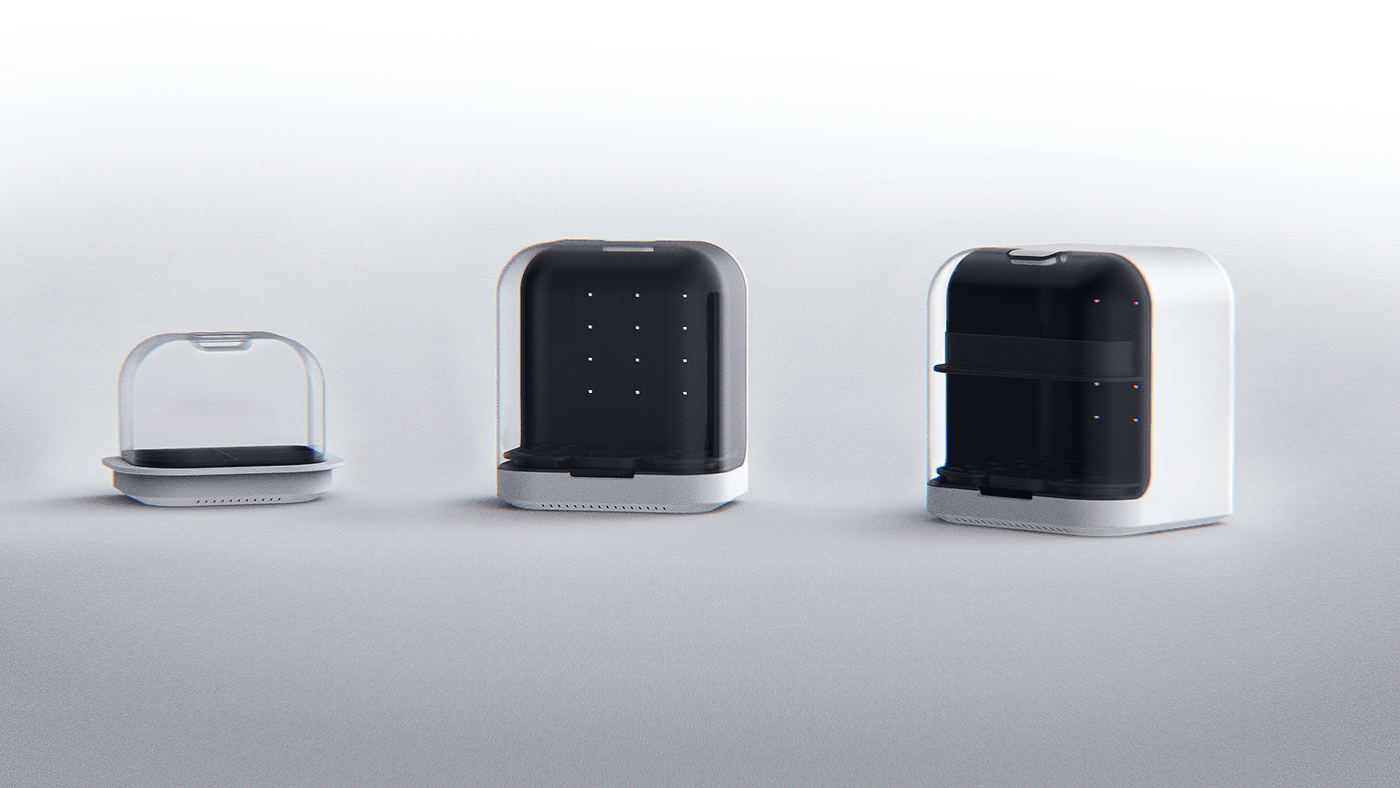
The concept was recognized with the Special Prize of the Hungarian Design Award in 2020. The award itself was handed by the State Secretariat for Higher Education, Innovation and Vocational Training by the Ministry for Innovation and Technology.

The concept was also exhibited on the Hungarian Design Award 2020 Exhibition during the Budapest Design Week 2020, on the Best of Diploma MOME 2020 Exhibition during the Romanian Design Week 2020, and on the Design Helps Exhibition in Prague during the Designblok Prague International Design Festival 2020. It was also among the shortlisted concepts of the i-D and ARTSTHREAD Global Design Graduate Show in 2020, and among the finalists of the 6th ArtHungry Design Award.

Supervisor: Balázs Püspök
Thank you for watching!

